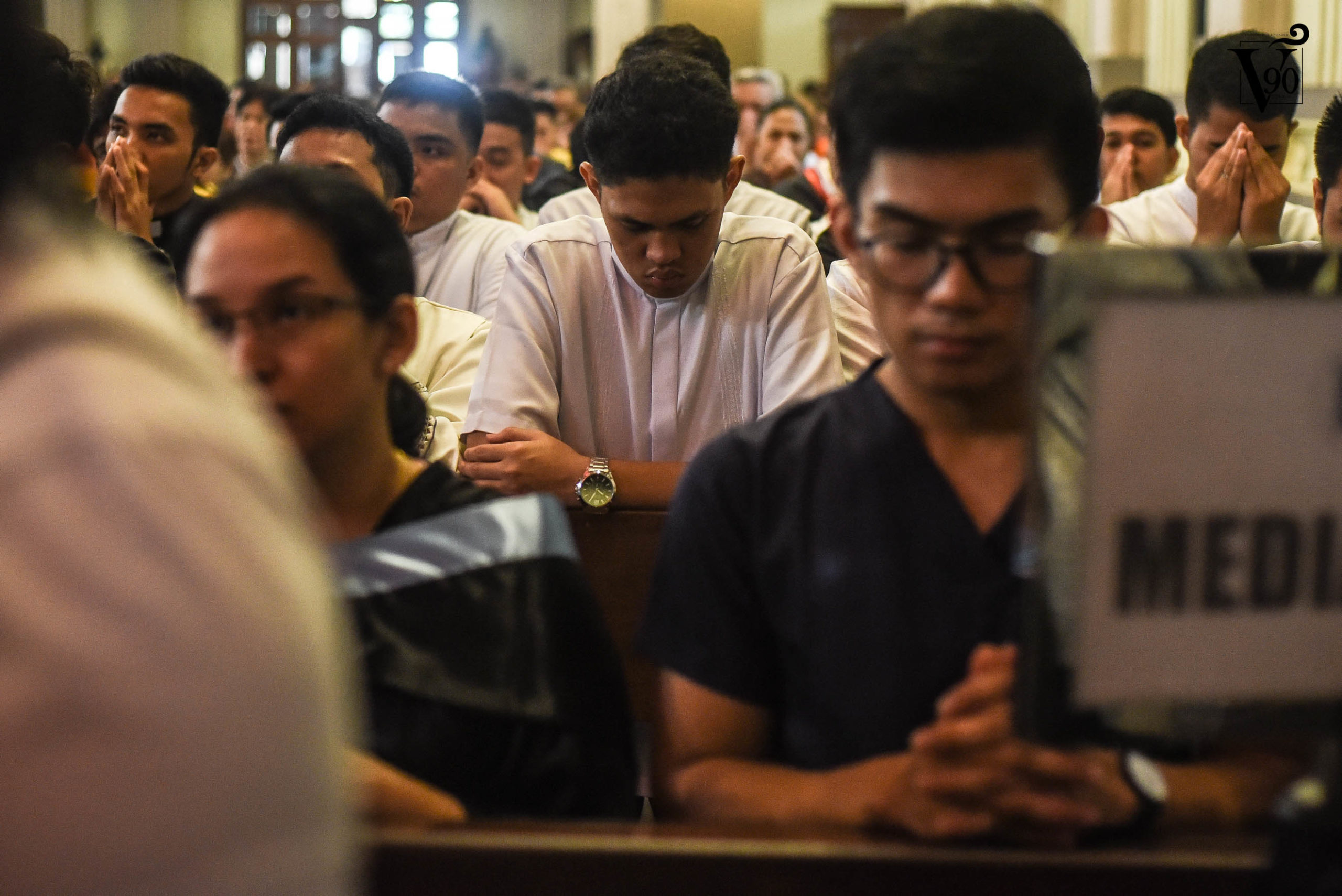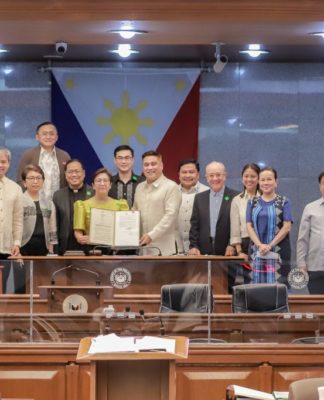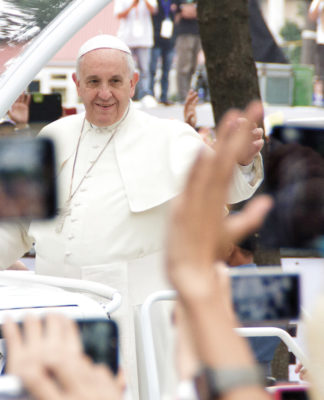CATHOLIC social ethics based on the teachings of St. Thomas Aquinas justifies any move by the Philippines to cancel its foreign debt which has become oppressive and unjust, said Fr. Fausto Gomez, O.P., a member of the Holy See’s Pontifical Academy for Life.
“Forty percent of our budget just goes to debt payment. We should have it erased,” said Gomez, regent of the UST College of Rehabilitation Sciences and former dean of the UST Faculty of Sacred Theology, in his talk, “The Relevance of St. Thomas Aquinas on Justice Today,” last Jan.19 at the Tanghalang Teresita Quirino in the UST Graduate School.
“John Paul II very strongly advocated for the cancellation of the debts of poor countries, especially during the Jubilee Year (in 2000). Most of the countries we owe had already gotten a lot from us,” said Gomez, a professor and author on social ethics and bioethics. “From the ethical point of view, I will push for the cancellation of our debts.”
The Philippines, with debt services outpacing expenditures on health care and education, and large masses of people living in less than $2 a day, is among the heavily-indebted middle-income countries being endorsed by the Jubilee Debt Campaign and the US-based Bank Information Center for expanded foreign debt cancellation eligibility.
“We must prioritize essential rights in global ethics,” Gomez said. “The right to life is above the right to property.”
The Dominican theologian added: “The injustice in our present system is highlighted in the fact that we penalize heavily any damage to property, but have no system of penalizing those who accumulate wealth more and more while others are without the basic necessities of food, clothing, and shelter.”
Father Gomez said the international creditors of the Philippines could afford a debt write-off.
He quoted St. Paul’s Letter to Timothy: “As for the rich of this world, charge them to be liberal and generous.”
Josephine Acosta-Pasricha, a UST professor of Philosophy and a Ford Foundation and Asian Institute of Management scholar, said debt cancellation would bolster the recovery of the Philippine economy.
“In 1986, there were positive moves for debt cancellation but (former President) Corazon Aquino didn’t push it,” she said. “Now those countries that have demanded it—Catholic countries like Poland and Argentina—have become successful economically.”
Civil Law Dean Justice Alfredo Benipayo, Graduate School Dean Dr. Lilian Sison, and Journalism professor and former New York Times correspondent Alice Colet-Villadolid heard the lecture.
The lecture was part of the national conference on St. Thomas Aquinas, the Doctor of the Church and the greatest Christian philosopher whose feast is observed in the Catholic calendar every Jan. 28. It was organized by the Graduate School and its Center for Professional Development and Consultancy Services.
Meanwhile, Rainier Ibana of Ateneo de Manila University lectured on “The Contemporary Relevance of St. Thomas’ Philosophy of Education.” Ibana drew insights from Aquinas and current neuroscientific findings.
Ibana said that the Thomistic epistemological priority for self-discovery and experience over textbook instruction is insightful “to reverse the trend of our becoming (passive) domestic helpers and clean-up operators of the world.”
“The task of teachers is to make their instruction manuals alive, just as our students have living thoughts that are waiting to be aroused from the dogmatic slumber of social institutions that prepare them to become passive consumers of the global market,” he said.
Other speakers discussed metaphysics and other Thomistic issues. Foreign lecturers included Herwi Rikhof, former rector of the Katholieke Theologische Universiteit in Utrecht, the Netherlands; and John Knasas of the Center for Thomistic Studies at the University of St. Thomas in Houston, Texas. Filipino speakers included Florentino Timbreza of De La Salle University, Manuel Dy of Ateneo, and Fr. Jose Antonio Aureada, O.P., dean of the UST Faculty of Sacred Theology.
















